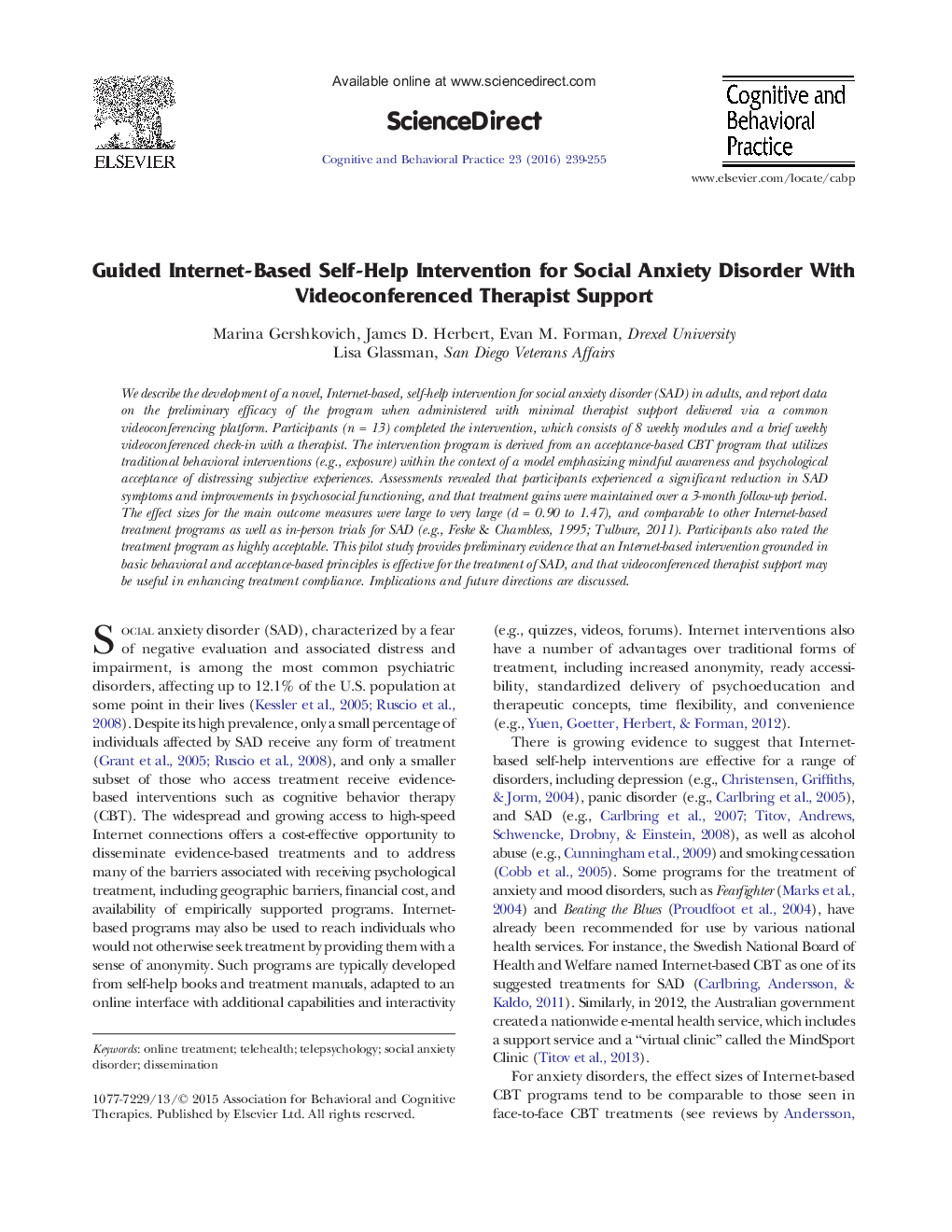| Article ID | Journal | Published Year | Pages | File Type |
|---|---|---|---|---|
| 904238 | Cognitive and Behavioral Practice | 2016 | 17 Pages |
•We developed a guided Internet-based intervention for social anxiety disorder.•Website modules were supplemented with therapist guidance, which was delivered via videoconferencing.•The intervention program consisted of 8 modules based on acceptance-based CBT model.•Internet-based interventions grounded in behavioral and acceptance-based principles may be effective for the treatment of SAD.•Therapist guidance via videoconferencing platform may enhance treatment compliance in Internet self-help treatments.
We describe the development of a novel, Internet-based, self-help intervention for social anxiety disorder (SAD) in adults, and report data on the preliminary efficacy of the program when administered with minimal therapist support delivered via a common videoconferencing platform. Participants (n = 13) completed the intervention, which consists of 8 weekly modules and a brief weekly videoconferenced check-in with a therapist. The intervention program is derived from an acceptance-based CBT program that utilizes traditional behavioral interventions (e.g., exposure) within the context of a model emphasizing mindful awareness and psychological acceptance of distressing subjective experiences. Assessments revealed that participants experienced a significant reduction in SAD symptoms and improvements in psychosocial functioning, and that treatment gains were maintained over a 3-month follow-up period. The effect sizes for the main outcome measures were large to very large (d = 0.90 to 1.47), and comparable to other Internet-based treatment programs as well as in-person trials for SAD (e.g., Feske & Chambless, 1995; Tulbure, 2011). Participants also rated the treatment program as highly acceptable. This pilot study provides preliminary evidence that an Internet-based intervention grounded in basic behavioral and acceptance-based principles is effective for the treatment of SAD, and that videoconferenced therapist support may be useful in enhancing treatment compliance. Implications and future directions are discussed.
